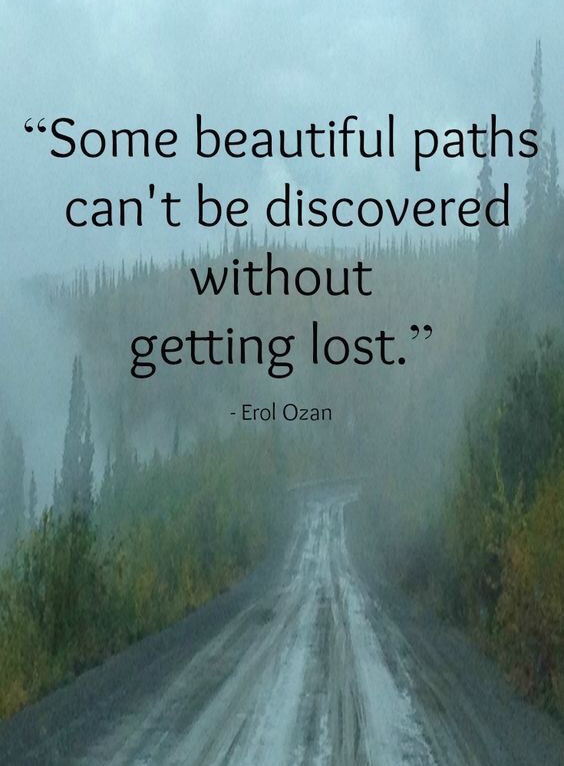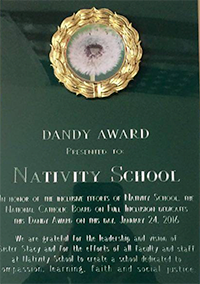
Recently, I took a phone call from a parent of a son with an intellectual delay who is in high school. Her son has some academic and social needs but they are not overwhelming. He’s in high school with dreams of his own…and yet there are many barriers for him.
That was the reason for the phone call.
This young man has spent the summer getting up early for cross country practice. He’s gone to practice while his family was on a vacation, driving for a long while to get a chance to run with his team-mates. For this student, running is a real chance at connection with classmates. He’s a strong runner and although he’s not in the front of the pack, he is solidly in the middle and this has given him a group to run with.
All should be good for the upcoming cross country season. He’s in shape and prepared. He knows what is expected and he has met those expectations. He hasn’t needed any additional support…but let’s stop right here and acknowledge that if he had needed support, it would have been okay too. Needing support should not be a deal breaker to be able to access after school activities for students with disabilities…or really any student.
So what’s problem??
Why the phone call?
The school decided that the student was a risk…a liability…a worry. They were concerned that he might get lost while running at an unfamiliar track. They told the student that he could only run in practice but not compete in races.
What?!?
The student had never gotten lost while on a run with the team. He had followed the rules. He stayed in the middle of the pack. He had kept his side of the bargain but the school was still worried…and this is where we all must stop and consider the consequences of such a decision.
Perhaps it is the fact that we all have Google maps and access to location information…maybe we are out of practice getting lost. Maybe we are so used to knowing our way that we don’t see the benefits and gifts of having a chance to get lost.
But, with the beginning of a new school year, I want to advocate for the gift of getting lost.
When was the last time you got lost?
It’s been a while for me and I am out of practice but I got lost on a visit to Venice a few years ago and it was a delight. Wandering the streets, crossing arched bridges that led to unknown alleys, looking for familiar landmarks were all something I wasn’t planning…I lost my way and the clock kept ticking…so, I stopped for gelato by myself and tried to figure out where to go next.
My family wasn’t worried…but they wondered…where did she go?
That chunk of time was a gift for me and a welcome change…when do we allow our children that chance?
Now consider children or young adults with disabilities…when are they afforded the luxury of getting lost?
Almost never.
This is understandable. Children with disabilities are more vulnerable. They have more needs and getting lost is the act of trusting that they have the skills to find their way back…or the ability to ask for help.
Our concern for protection overrides our desire to help them build these necessary skills.
Consider students with disabilities on your school’s campus. Do they ever have the chance to meander and make their way like a typical student? Are they constantly monitored and paired up with another student to get them to the next location without any mistake? Does the paraeducator escort them everywhere?
That is certainly efficient…and safe…but I want to advocate for the chance to get lost.
There is a phrase within the disability world called the Dignity of Risk.
We need to make space for our children and young adults with disabilities to challenge themselves…try new things…and yes, even get lost.
We need to teach them the microsteps of finding their way…of what to do when you are lost…of how to depend on yourself and the tools at your disposal to find your way back home.
One very hot day in the fall, my son, Patrick, who has Down Syndrome was in 9th grade. His ride to pick him up had texted him and waited for him to come out to their meeting spot. My son’s phone had run out of battery. He had forgotten that someone else was picking him up so he was looking for me. He was a little late getting out because of friends…and he couldn’t find his ride.
He had no battery so he couldn’t call.
So, he made an executive decision to walk home.
It was extremely hot…and when his ride couldn’t find him and alerted me, we both were worried.
They searched campus…enlisted the help of the teachers…but no luck.
I was supposed to be teaching a class on a college campus but with the news, I came home to begin the search.
No phone…no communication…it was frightening…and out of my control.
WAY way out of my comfort zone.
Meanwhile, Patrick was just walking and walking and walking.
Unknown to us, he knew the way.
He made it home, hot and unflappable.
We were amazed.
We talked a lot about keeping the phone charged up…and about reaching out to people on campus who can help if you need it.
But we had to acknowledge that the choice he made was practical and well-considered.
He found his way home
It was a reminder to me that my son has skills that he has developed but never used.
It was a chance for all of us to realize that my son could handle something unexpected…and had practical, common sense solutions to a situation where he didn’t know the answer.
It was also a giant step forward for his independence.
If he knew his way home from school, maybe he knew his way home from other places in town?
Maybe he could try walking home from somewhere else?
Patrick had people on both ends of his path waiting for him and looking for him…this was his path home so it was familiar and commonplace.
This was the perfect place to try to find his way home.
Same with the cross country student.
Yes, he might get lost on a different track. Yes, he might lose his way. That sometimes happens when you run cross country.
But he would have other racers nearby. He would have observers on the trail cheering for the race. He would have coaches and family there too.
Isn’t it the perfect place to try??
If you are going to live your life, you are very likely going to get lost.
It’s the price we all pay for independence.
The only people who don’t get lost are those who are incarcerated…or those that are so blanketed with supervision that they aren’t given the dignity to try.
Getting lost is scary…but for whom?
Patrick wasn’t scared when he was walking home…he knew the way.
The cross country student very likely wouldn’t be scared, he’s been practicing…he’s ready.
The people who are scared are those of us on the sidelines.
We know that bad things can happen…there are accidents or unkind people…there are risks that seem too high.
But what’s the risk of being utterly dependent on others?
What’s the price for freedom?
We must be willing to give our children the chance to find their way home.
We are cruel when we limit our children or our students because of our own discomfort.
We are the ones who need to get uncomfortable and honor the path to freedom.
We need to get out of the way with our well-meaning “But what ifs”
What if you are tethered to home your whole life?
What if no one learns of the gifts that only you can bring to our world because we are too afraid to let you shine?
What if you never get the chance to live – really live – your one wild and precious life?
As parents and educators that is too high a cost.
This year, work in the opportunity for your students to get lost and to find their way back.
Make space for the discomfort.
Develop the skills.
Believe in them.
And then…let them try.
They will find their way home…and so will we.



